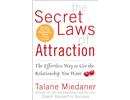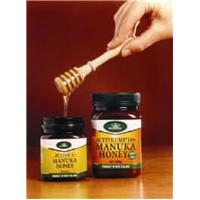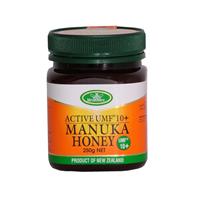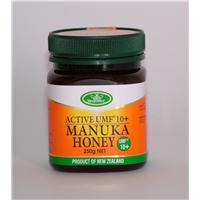
Copenhagen: A group of international scientists is claiming that vitamins do not extend life and may even end it prematurely.
After analysing 67 studies of more than 230,000 men and women, they conclucded that there was little evidence that those taking supplements of the antioxidant vitamins A, C and E were healthier.
In the UK, for example, a third of the population take supplements – a total spend of £333million annually. This amounts to 40% of women and 30 per cent of men taking pills each day.
The analysis examined trials on beta-carotene, vitamin A, vitamin C, vitamin E and selenium. It says in-depth analysis of the different trials does not support the idea that vitamins extend lifespan.
‘Even more, beta-carotene, vitamin A, and vitamin E seem to increase mortality,’ says the review.
Vitamin A was linked to a 16 per cent increase in mortality, beta-carotene – the pigment found in carrots, tomatoes and broccoli which the body converts into vitamin A – to a 7 per cent increase and vitamin E to a 4 per cent increase. However, there was no significant detrimental effect caused by vitamin C.
‘There was no evidence to support either healthy people using antioxidants to prevent disease or for sick people to take them to get better,’ said the published by the Cochrane Library, a publication of the Cochrane Collaboration, an international organisation which evaluates healthcare research.
It said more research was needed on vitamin C and selenium. Antioxidants are used by the body as protection against free radicals, which are molecules produced during normal metabolism.
These can damage the body if they flourish in an uncontrolled way as a result of illness, overexposure to toxins or ageing.
It is thought antioxidants such as vitamin C confer health benefits by ‘grabbing’ or neutralising free radicals, and many people take them as health ‘insurance’.
The theory behind using antioxidants is to combat oxidation – the chemical reaction that causes metals to rust – which in cells can damage DNA, thus raising the risk of cancer, other diseases and the changes associated with ageing.
Previous human and animal laboratory research suggested that boosting antioxidant levels in the body might extend life, but other studies produced neutral or even harmful results.
Altogether 47 trials involving 180,938 people were classified as having a low risk of bias which showed ‘antioxidant supplements significantly increased mortality’.
Goran Bjelakovic, who led the review at the Copenhagen University Hospital in Denmark, said: ‘We could find no evidence to support taking antioxidant supplements to reduce the risk of dying earlier in healthy people or patients with various diseases.
‘The findings of our review show that if anything, people in trial groups given the antioxidants beta-carotene, vitamin A, and vitamin E showed increased rates of mortality.
‘There was no indication that vitamin C and selenium may have positive or negative effects. So, regarding these antioxidants, we need more data from randomised trials.
‘The bottom line is that current evidence does not support the use of antioxidant supplements in the general healthy population or in patients with certain diseases.’
The review does not offer any biological explanation as to why supplements can cause harm, although it has been suggested that betacarotene, for example, might interfere with the body’s use of fats.
There is no suggestion from the review that a healthy diet including plenty of vegetables and fruit – natural sources of antioxidants – is harmful.
Some of Britains most popular celebrities have spoken out against this weeks alarmist and grossly misleading vitamin story, which wrongly questioned the safety of the antioxidant supplements that benefit millions of consumers in this country.
Sir Cliff Richard, Gloria Hunniford, Jenny Seagrove and Carole Caplin have joined health industry experts in rejecting the widely publicised antioxidant review and reassuring consumers that concerns over these supplements are unfounded.
An extensive body of scientific research has proven that taking supplements, including vitamins C, E and beta-carotene, selenium and zinc can play a significant role in maintaining good health. The updated meta-analysis published in the Cochrane Database of Systematic Reviews 2008 should not cause consumers to question the efficacy or safety of antioxidant supplements.
“Provided they follow the intakes on the label consumers shouldnt be concerned about the safety of antioxidant supplements available on the UKs High Streets,” said Dr Michele Sadler on behalf of the Health Food Manufacturers Association (HFMA).
The truth of the matter is that this meta-analysis is simply not applicable for vitamin users in this country. The analysis largely focused on extraordinarily and atypically high doses of antioxidant vitamins in fact, the mean value of vitamin A used in the research was more than four times the upper level in typical formulations sold in the UK, and some of the studies tested up to 40 times the UKs safe upper limit. Supplement users would have some trouble trying to replicate this kind of daily intake, explained David Adams of the HFMA.
Celebrity Support
Joining the growing body of health supplement supporters concerned at the effects such stories will have on the millions of consumers who use supplements to boost their health and wellbeing,
Sir Cliff Richard said: “I’ve always freely admitted to taking food supplements. I’ve done so for years and believe that they’ve been beneficial to me personally. For those of us prone to put on weight at the drop of a chocolate digestive, it’s only logical to compensate for some of the vitamins and nutrients that we deny ourselves at mealtimes. Certainly if a time came when we were denied the freedom of choice to take our dailypills and potions, I would be seriously concerned.”
Gloria Hunniford said: “Doctors and experts’ are always saying that to get the nutrients we need, all we have to do is eat a proper diet. But show me the people who do on a regular basis. Most of us eat on the run, myself included, and sometimes we have no choice but to snack on whatever food is available at the time. Under professional guidance, I have used vitamin supplements for many years to augment what I eat – and will certainly continue to do so.”
Carole Caplin added: “It must be obvious to everyone who hasnt got a vested interest in supplements that this review is absolute rubbish, it contains fundamental flaws.
With nearly 750 studies to choose from, why did the researchers manage to focus on just 67? That’s less than nine per cent of the total number of clinical trials on antioxidants available. The research makes clear the team failed to determine the actual cause of death, so there is no proven link whatsoever between the antioxidants assessed and mortality.
“This isn’t even a new study – it’s simply a re-hash of old work which was widely criticised in 2007 for its inaccuracies. It is only common sense that our bodies need regular supplies of essential nutrients for growth and maintenance.
Obtaining all we need from food is not always possible so high quality supplements often have a valuable role to play. When taken responsibly they act as a health insurance policy. I will certainly continue to both use and recommend them when necessary.”
Jenny Seagrove said: “To those of us who use vitamins in the UK, this research seems utterly pointless. I cant help but wonder why they have chosen to report it again at this time, just when the EU is about to set dose levels for all vitamins and minerals. The antioxidant dose levels in our vitamin tablets are tiny compared to the levels tested in this research, and dont forget that the high level antioxidant doses they used are not even available in UK supplements.
Im not going to be bullied by this dismal research paper – I am 100% confident that the vitamins and mineral supplements I use are safe and effective and I will continue to use them when I choose.”
Fundamentally and Systematically Flawed
In an opinion shared by the majority of the health industry, David Adams continued: This review is fundamentally flawed. Of the 67 clinical studies included in the review, over two thirds of the total were conducted on individuals already diagnosed with disease, resulting in a serious bias in the results. No matter how positive the effects of antioxidant vitamins on good health, they simply cannot be expected to overturn previously diagnosed, chronic illness.
The authors decision to investigate all cause mortality also created a multitude of problems. The study failed to examine the differences in causes of death, and the results were based on all types of causes, which could range from accidents to other illnesses. With 69 per cent of the trials involving individuals with diagnosed disease, mortality occurring throughout the study period could have been related to the pre-determined illness. Furthermore, the study omitted to identify the intervention of prescribed medication.The authors themselves point out that the doses in some trials were above the upper safe levels of intake and comment that
further investigation into the causes of mortality is necessary for accuracy in measurement of the results.
David Adams concluded: Antioxidant supplements cannot be expected to undo a lifetime of unhealthy living, but combined with good lifestyle choices, can play an important role in promoting overall health and wellbeing.
Director of Consumers for Health Choice, Sue Croft said: Twenty-one million people in the UK use dietary supplements every day. They cant all be wrong! We have been using vitamins and minerals here for almost fifty years; they are not a fad, from time to time they play an important role in maintaining optimum health they are part of our culture.
The re-publishing of the research paper at this time is highly suspicious. Not only that, it will cause concern and anxiety to millions of consumers who regularly use such supplements.
The EU is about to reveal their proposals for dose levels that could well mean that many thousands of really beneficial and safe products will be removed from the British market and many small retailers will be forced to close. We do need to preserve our existing specialist market; people wanting to take responsibility for their own health should be encouraged to keep themselves well through optimal supplementation.
The HFMA
The Health Food Manufacturers Association (HFMA) is the voice of the UKs natural health industry and represents more than 120 manufacturers and suppliers of natural health products.
Founded in 1965, the HFMA is a not-for-profit organisation which operates long-standing codes of practice to help ensure that member companies adhere to high standards and offer good quality, safe products supported by responsible, lawful information.
For further information about the HFMA, visit www.hfma.co.uk
Higher Strength Supplements
UK industry associations and the Food Standards Agency have agreed advisory
statements for use on the labels of supplements containing high levels of specific nutrients: see www.food.gov.uk”
Dr Michèle J Sadler, BSc PhD RPHNutr BSc Hons (1979)
Qualifications include BSc in Nutrition at Queen Elizabeth College, London University and Doctorate in Biochemistry, University of Surrey. Dr Sadler has edited several reference works most notably as Editor-in-Chief of Encyclopaedia of Human Nutrition, (3 volumes), Academic Press, 1998.
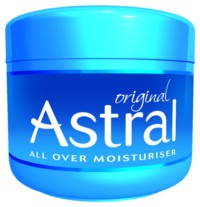 With female babyboomers set to live longer, up to 85 years on average, life and work worries are now overshadowing their prime. According to Astrals new report , health concerns (50%) topped the list of worries, followed by family woes such as children and ageing (40%), then finance (30%) followed by the state of the world (25%).
With female babyboomers set to live longer, up to 85 years on average, life and work worries are now overshadowing their prime. According to Astrals new report , health concerns (50%) topped the list of worries, followed by family woes such as children and ageing (40%), then finance (30%) followed by the state of the world (25%).






